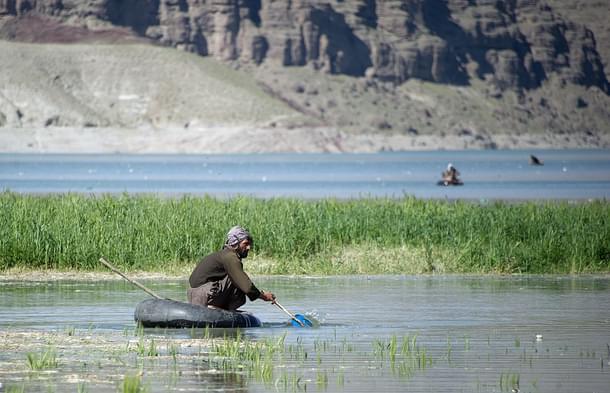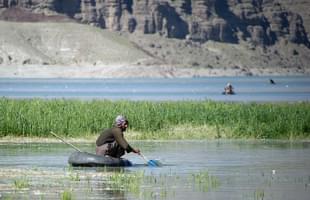Insta
Pakistan Does Not Have A Water Sharing Arrangement With Afghanistan. A Potential Strategic Lever For India?
Swarajya Staff
Oct 13, 2016, 12:58 PM | Updated 12:58 PM IST
Save & read from anywhere!
Bookmark stories for easy access on any device or the Swarajya app.


During its recent foray into the world of coercive diplomacy, India drove around various options to successfully inflict retribution on Pakistan for the Uri attack. From the withdrawal of the most favoured nation status to the abrogation of the Indus Waters Treaty (IWT), the country explored all non-military options to deter Pakistan from supporting militants and terror proxies.
The sharing of water that flows from India to Pakistan through the six shared rivers is governed by the IWT, brokered by the World Bank and signed in 1960. While the option to abrogate the IWT was widely debated, a final decision is yet to be made. The only reason for not having abrogated the treaty could be the international fallout that the action would bring. A humanitarian crisis in Pakistan would portray India as the aggressor, and not the victim. Of course, that is not what the government wants.
Interestingly, the recent worsening of India-Pakistan relations was not only accompanied by increasing synchronisation between Kabul and New Delhi, but also by deterioration in the bilateral relationship between Pakistan and Afghanistan due to a wide range of contentious issues.
Afghanistan is building dams on the Kunar and Kabul rivers – tributaries of the Indus which feed Pakistan’s least-developed areas in Khyber Pakhtunkhwa region. A recent feasibility study for the construction of 12 hydropower projects was concluded with the help of Indian experts. When operational, these dams will have a total storage capacity of 4.7 million acre feet of water squeezing the flow in the river reaching Pakistan. According to The News, World Bank would provide Afghanistan $7.079 billion for the construction of these dams.
The two countries currently share nine major rivers with an annual flow of about 18.3 million acres feet (MAF) of which the river Kabul accounts for 16.5 MAF, while river Chitral, which originates from Pakistan, contributes about 8.5 MAF. After it enters Afghanistan this river is called river Kunar. It joins the river Kabul near Jalalabad and then re-enters Pakistan.
In absence of a formal water-sharing agreement, Afghanistan can tighten its control over the flow of these rivers. In view of the deteriorating relations between the two countries, the eventuality may arise. Much to Pakistan’s displeasure, its traditional blackmail to block Afghanistan’s access to seaports may not work.





